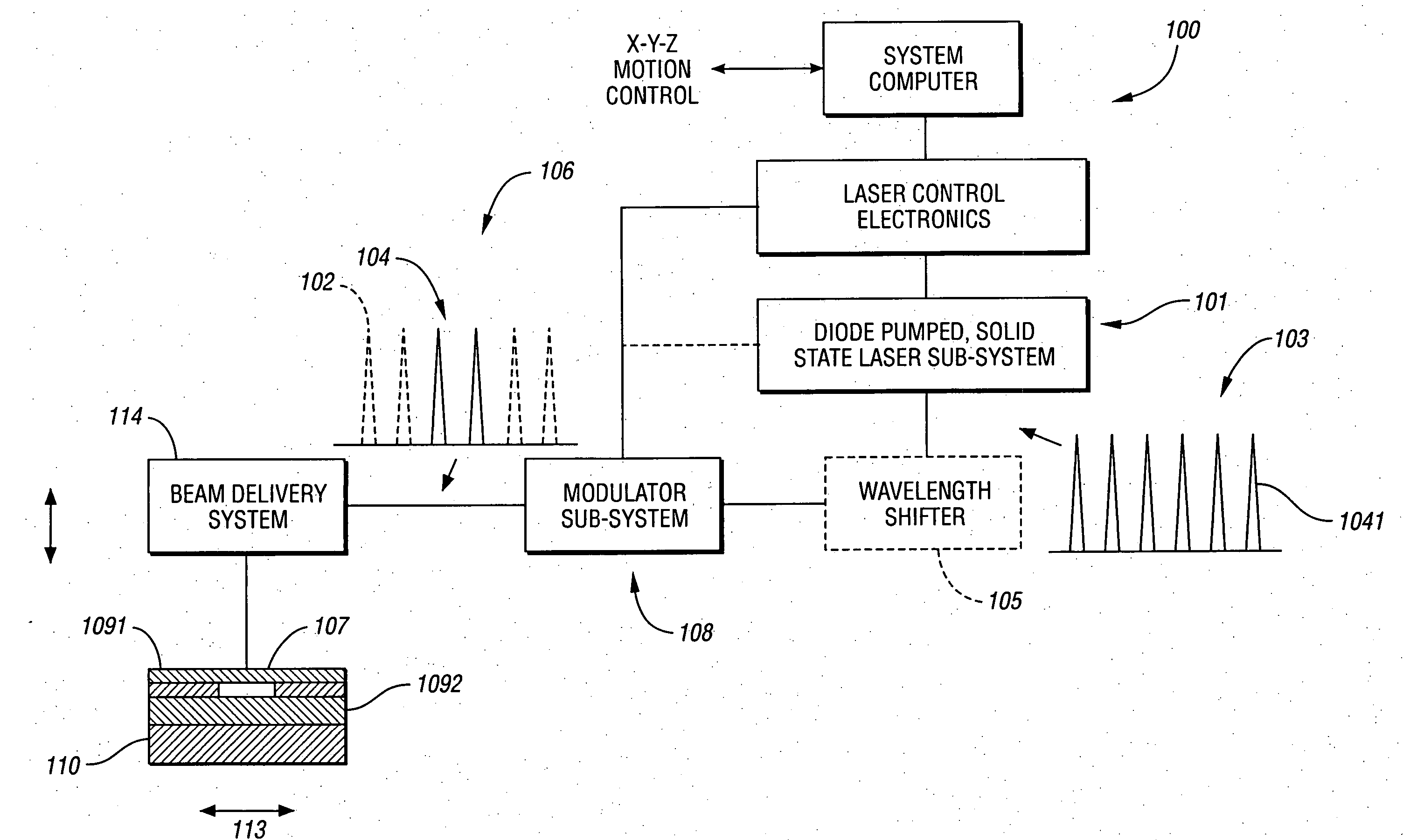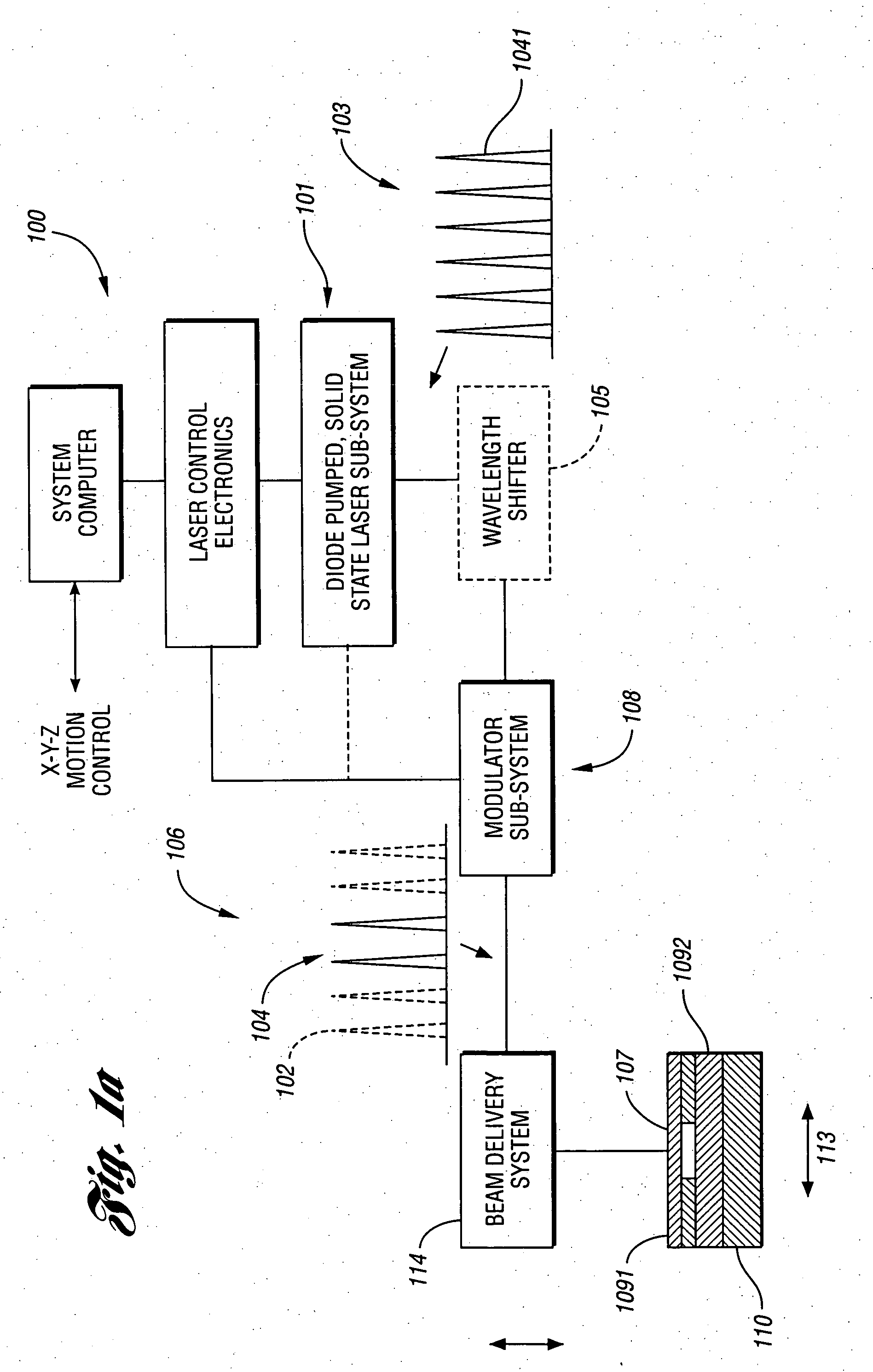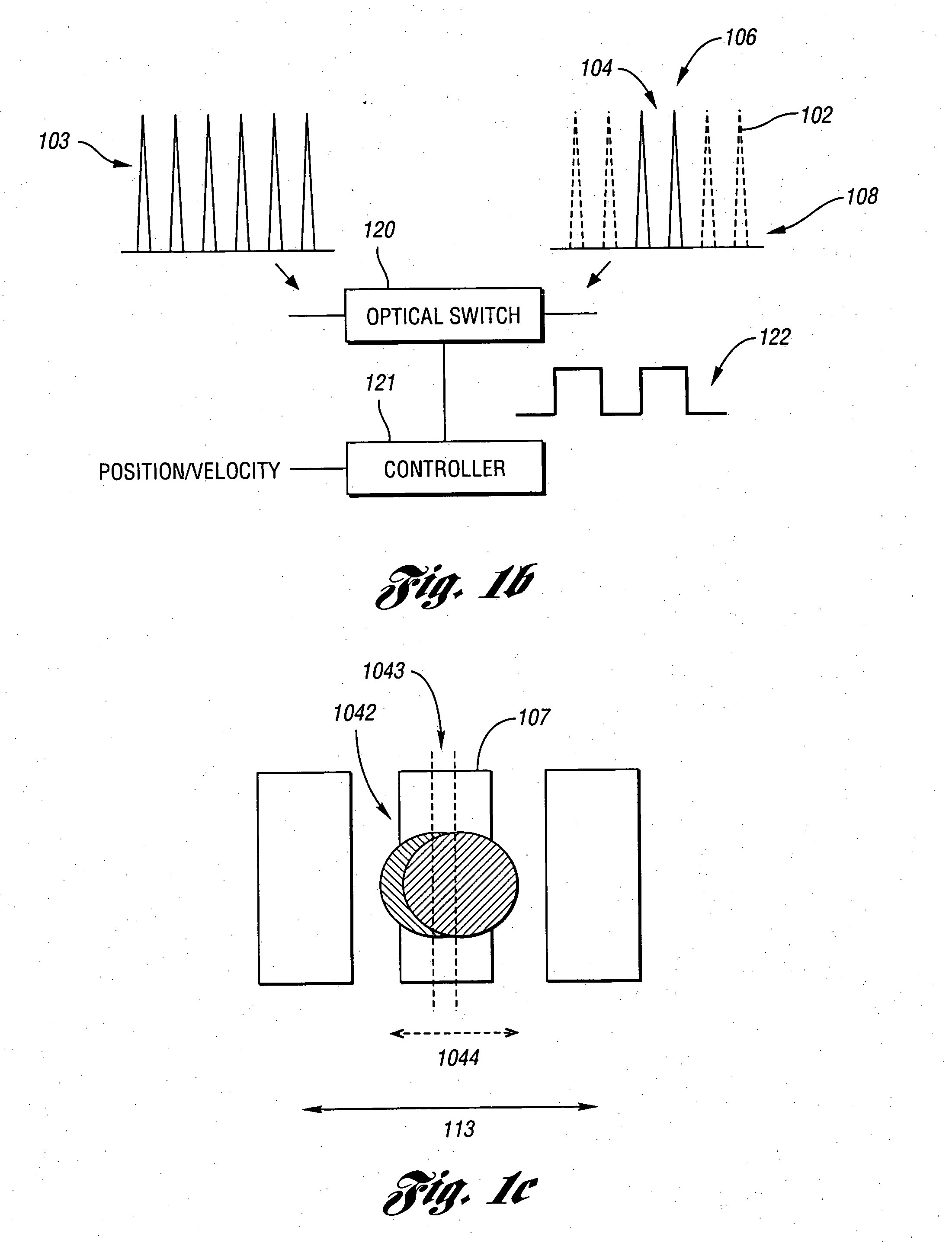Laser-based method and system for memory link processing with picosecond lasers
a memory link and laser technology, applied in the direction of conductors, semiconductor/solid-state device testing/measurement, semiconductor/solid-state device details, etc., can solve the problems of high pressure build-up of molten link contained by oxide, small device, and low thickness of interconnects and links. achieve the effect of improving the quality of laser processing
- Summary
- Abstract
- Description
- Claims
- Application Information
AI Technical Summary
Benefits of technology
Problems solved by technology
Method used
Image
Examples
Embodiment Construction
)
[0092] Overview--Laser System Architecture
[0093] Referring to FIG. 1a, a block diagram illustrating a portion of a laser processing system 100 for removal of an electrically conductive link 107 using at least one output pulse 104 having a picosecond pulse width (i.e., pulse duration, etc.) 1041 (e.g., as measured at the half power point) and shows some major system components included in at least one embodiment of the present invention is shown. At least one embodiment of the invention may include a diode pumped, solid state laser in sub-system 101 to produce intermediate pulses 103 having pulse widths 1041 in a preferred picosecond range. The laser may be a commercially available diode pumped, solid state (active or passive) mode locked laser, for instance. For operation at a preferred wavelength the output 103 of the system 101 may be shifted in wavelength by optional shifter 105 (e.g., a harmonic generator) for example from a near infrared wavelength to a visible or near UV wave...
PUM
| Property | Measurement | Unit |
|---|---|---|
| wavelength | aaaaa | aaaaa |
| pre-determined wavelength | aaaaa | aaaaa |
| pre-determined wavelength | aaaaa | aaaaa |
Abstract
Description
Claims
Application Information
 Login to View More
Login to View More - R&D
- Intellectual Property
- Life Sciences
- Materials
- Tech Scout
- Unparalleled Data Quality
- Higher Quality Content
- 60% Fewer Hallucinations
Browse by: Latest US Patents, China's latest patents, Technical Efficacy Thesaurus, Application Domain, Technology Topic, Popular Technical Reports.
© 2025 PatSnap. All rights reserved.Legal|Privacy policy|Modern Slavery Act Transparency Statement|Sitemap|About US| Contact US: help@patsnap.com



